
Conservative estimates say there are 150,000 unwanted horses in the United States. Yet a study published in 2017 by the ASPCA suggested there could be as many as 1.24 million households with the ability and willingness to adopt a horse. These numbers don’t add up. It’s clear that a lack of connection between horses in need and individuals willing to provide care is a big part of the unwanted horse problem. Could you be part of the solution? Let’s find out.
In this article, you’ll learn how a horse becomes unwanted, what problems those horses might have, and what you can do to help. If you’ve ever dreamed of saving the life of a horse in need, here’s your guide to becoming an equine foster parent.
Why Does a Horse Become Unwanted?
As a horse lover, it’s hard to imagine how a horse becomes unwanted. Yet every day more horses enter the unwanted horse pipeline and find themselves on the road to neglect and abuse. The American Association of Equine Practitioners defines an unwanted horse as one that is “no longer wanted by their current owner because they are old, injured, sick, unmanageable, or fail to meet their owner’s expectations.” Here’s how it happens:
Medical: A wide variety of medical problems can cause a horse to become unwanted, such as chronic lameness that makes him unrideable, a disease such as Cushing’s that requires ongoing medication, or an allergy that demands careful management. If a horse’s medical needs exceed an owner’s capacity (or desire) to care for him, that owner may seek to rehome the horse, or will simply abandon him.
This story is from the {{IssueName}} edition of {{MagazineName}}.
Start your 7-day Magzter GOLD free trial to access thousands of curated premium stories, and 9,000+ magazines and newspapers.
Already a subscriber ? Sign In
This story is from the {{IssueName}} edition of {{MagazineName}}.
Start your 7-day Magzter GOLD free trial to access thousands of curated premium stories, and 9,000+ magazines and newspapers.
Already a subscriber? Sign In

The Horse
LIFE TAKES US DOWN different paths, but I seem to be on just one, which is with the horse.
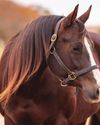
Decoding the Diseases Examined by AQHA's Six-Panel Test
The six-panel test is a diagnostic tool used to assess the genetic predispositions of horses. It's meant to discover if a horse has or is a carrier for certain hereditary diseases and traits.
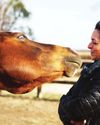
Love is Good
All horses are assured a hopeful, compassionate plan of care at This Old Horse, a program that helps not only horses but people, too.

HORSE PACKING 101
Take your trail riding to the next level with nature-filled adventures in the back or front country.

NEW HORSE; NEW PROBLEMS
Anew horse can bring excitement and energy to the barn, and even reinvigorate your passion. However, there are also a myriad of new problems that can come with a new horse, so learn how to introduce him properly to avoid these common issues.
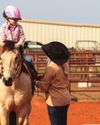
First-Timer Tips
Heading to a young rider's first event with their horse can be intimidating. Use these myths and truths to make it smoother sailing for yourself and your young rider.
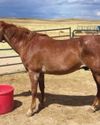
Re-Rescued: Aslan's Story
One special gelding learns about three different types of love during his rescue journey.
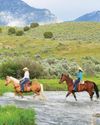
The Country's Hottest Horse Motels
Take your next trail-riding adventure to the next level by staying at one of these six horse motels across the United States.
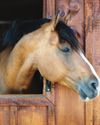
Outbreak! What We've Learned
Learn how disease outbreaks in recent years have changed the horse industry, and why it's so important to play your part when it comes to disease prevention efforts.

TRAINING THE SENSITIVE HORSE
Shift your mindset and grow your sensitive horse's pressure-handling skills to improve his confidence and your riding enjoyment.